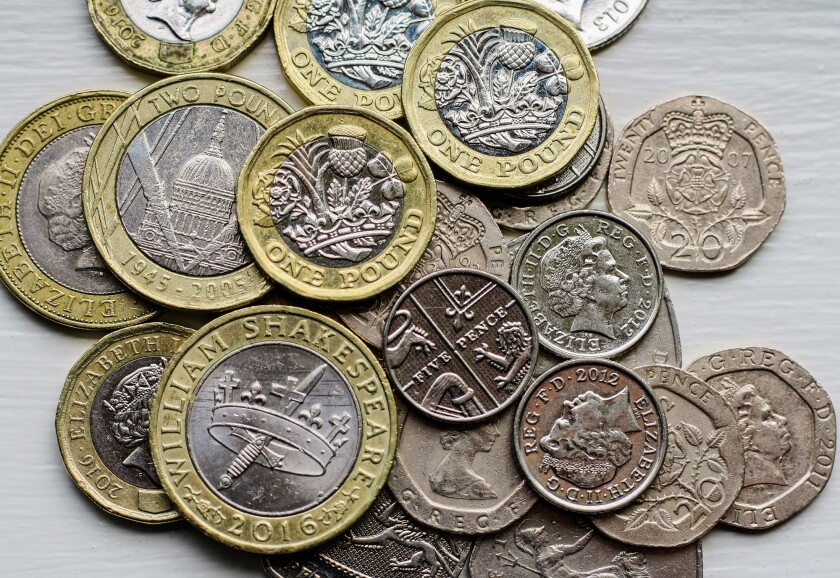50 years of VAT in the UK
For half a century, indirect tax executives in the UK have wrestled with such legendary questions as when is a crisp a savoury snack? Why is a Jaffa Cake a biscuit? And why is one size of marshmallow different from another for tax purposes?
It is all do with VAT, which was introduced in the UK 50 years ago, on April 1 1973, as part of joining the European Economic Community before it evolved into the EU.
At the moment, the UK charges a standard rate of 20%, but some essential items such as food and children’s clothing attract the reduced rates of 5% or 0%.
Now that the UK has left the EU, it has the freedom to set its own VAT rates and rules. It remains to be seen how much it diverges from the VAT in the Digital Age proposals that the European Commission unveiled in December 2022, which it described as the most important changes to VAT policy in the EU in 30 years.
Saudi Arabia steps up e-compliance requirements
Saudi Arabia is continuing with its rollout of electronic indirect tax compliance since it began three years ago. The country unveiled its E-Invoicing Regulation in December 2020, announcing that it would implement it in two phases:
1. The first took effect from December 2021, requiring businesses to generate e-invoices and e-notes, as well as comply with processing and record keeping rules; and
2. The second phase – the subject of the latest announcement – is effective from January 1 this year and means businesses must integrate their systems with the Saudi General Authority for Zakat, Tax, and Customs Authority (ZATCA) – including the sending of e-invoices and e-notes.
Depending on the size of business, ZATCA will implement the second phase in two stages. Businesses with turnover of more than SAR3 billion ($800 million) during the 2021 calendar year will move over to the new system in the first six months of 2023.
Companies with revenues of more than SAR500 million but less than SAR3 billion will do so in the second half of the year.
Italy looks to future with fewer VAT rates
Companies doing business in Italy could be set for some good news since plans to simplify the country’s VAT rates announced as part of comprehensive tax reform were unveiled by the country’s Council of Ministers on March 14.
Italy has three rates now, of which the standard one is 22%. Three reduced rates, not including zero-rating, apply to items such as foodstuffs and domestic passenger transport (10%); social services (5%); and books and newspapers (4%).
Unconfirmed reports suggest that the two lower rates will be merged. Italy can do this following an agreement by EU finance ministers in 2022 that member states could have more scope to use reduced rates.
NFTs are electronic services, says European Commission
You may have thought that the EU would already have a conclusive answer for how non-fungible tokens should be treated for VAT purposes since their emergence in the digital asset sector in the last few years.
This is even after their investment shine has reduced because of the various woes crypto businesses have got themselves into. Investors, both big and small, used to feel they had to be part of their portfolio. They tread more warily around them now.
However, it was only on March 21 that the European Commission’s VAT Committee produced a review, known as working paper 1060, of the treatment of EU VAT for NFTs. The aim of the working paper is to clarify the NFT ecosystem, VAT rulings so far and how member states could agree on a common VAT treatment across the bloc.
The committee’s work considers a range of VAT transactions or supplies, such as creating or minting NFTs, trading them or being awarded them, and whether VAT should be applied to them.
NFTs are electronic services, according to the review, so are subject to VAT.
No more GST on digital supplies from outside Australia
Digital products supplied from overseas have just got cheaper for Australian recipients. Non-residents no longer have to charge goods and services tax on digital products they supply to Australia, with effect from March 2.
The Australian government eliminated the requirement because of the implications of the A New Tax System (Goods and Services Tax) Act 1999, which now means that GST is applied consistently to all supplies of digital products and other imported services to Australian consumers, and that non-resident suppliers do not have to account for GST on certain supplies.
Changing habits hurt UK tax revenues
Smoking cigarettes and drinking alcohol are going out of fashion with the UK’s younger generations and that is playing havoc with the country’s tax revenues to the tune of £14 billion ($17.1 billion). That is what the Treasury would have collected the last tax year if so-called ‘sin taxes’ had kept pace with what they were 20 years ago.
Tobacco and alcohol now only contribute 1% and 1.3% of total public sector receipts. Two decades ago, the figure for tobacco was 1.9%, with alcohol bringing in 1.7%.
The situation has meant that UK Chancellor Jeremy Hunt and his team have had to look to higher income and corporation taxes in an attempt to make up the difference.











